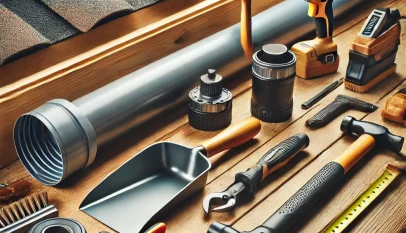Finding a recycling dropoff near mecan make a significant difference in reducing waste and promoting sustainability. Many communities offer designated spots for residents to easily recycle items like plastics, metals, and paper. By participating in these programs, individuals play a crucial role in environmental conservation.
Knowing where to go is essential. Local governments and environmental organizations usually maintain updated lists of recycling centers. They provide information on accepted materials and hours of operation, ensuring that residents can make informed choices about their recycling efforts.
For those wondering about the convenience of recycling, it’s reassuring to know that drop-off sites are often located within neighborhoods or easily accessible areas. Engaging in recycling not only benefits the planet but also fosters a sense of community responsibility.
Finding Recycling Drop-Off Locations
Identifying recycling drop-off locations is essential for promoting environmentally friendly practices. Several options exist, including local recycling centers, municipal programs, and specialized facilities.
Local Recycling Centers
Local recycling centers are convenient options for residents. They often accept a variety of materials, including paper, plastics, metals, and glass.
To locate the nearest recycling center, individuals can:
- Check local government websites for listings.
- Use mapping services like Google Maps by searching for “recycling drop-off near me.”
- Inquire at community centers or libraries for information.
These centers typically have set hours for drop-off. Many also provide educational resources about recycling practices and accepted materials.
Municipal Waste Management Programs
Municipal waste management programs play a critical role in recycling efforts. Many cities operate dedicated recycling programs that include scheduled curbside pickup alongside drop-off options.
Residents can participate by:
- Visiting the local waste management department’s website for program details.
- Reviewing flyers mailed with utility bills that explain available recycling services.
- Calling local government offices for inquiries about materials accepted and schedules.
These programs often accept a broad range of recyclables, ensuring that residents can dispose of their items responsibly.
Specialized Recycling Facilities
Specialized recycling facilities cater to specific materials that cannot be processed by local centers. Examples include electronics recycling, hazardous waste disposal, and yard waste processing.
To find specialized facilities, individuals may:
- Visit the state department of environmental protection’s website.
- Connect with local environmental organizations that provide resources.
- Check partnerships between municipalities and specialized recyclers, which often offer events for safe disposal.
These facilities ensure proper handling and processing, significantly reducing environmental impact. Each facility may have unique requirements regarding what items they accept, making it crucial for individuals to verify details beforehand.
Preparing Materials for Recycling
Proper preparation of recyclable materials is essential for effective recycling. This involves sorting items, preventing contamination, and adhering to local recycling center guidelines. Each step is crucial to ensure that recyclables are processed correctly and efficiently.
Sorting Recyclables
Sorting recyclables is the first step in preparation. Individuals should separate materials into designated categories, such as plastics, metals, paper, and glass.
Common categories include:
- Plastics: Numbered 1 (PET) and 2 (HDPE) are most accepted.
- Metals:Aluminum cans and tin cans can typically be recycled.
- Paper: Clean paper and cardboard can be recycled, while soiled or greasy materials should be discarded.
- Glass: Clear, green, and brown glass bottles are generally accepted.
Each category should be placed in separate bins or containers to simplify the recycling process at drop-off locations.
Contamination Prevention
Contamination poses a significant challenge in recycling efforts. It occurs when non-recyclable materials or dirty recyclables are mixed with acceptable items.
To prevent contamination:
- Rinse all food containers to remove residues.
- Avoid including items like plastic bags, polystyrene foam, and composite materials that are not recyclable.
- Check local recycling guidelines for specific items that may be considered contaminants.
Maintaining clean and uncontaminated materials increases the likelihood of successful recycling and reduces landfill waste.
Recycle Center Guidelines
Each recycling center may have specific guidelines that differ based on local policies. It is important for individuals to familiarize themselves with these rules.
Key considerations include:
- Accepted materials: Confirm which items are accepted and which are not.
- Preparation requirements: Some centers may require items to be sorted or cleaned before drop-off.
- Location hours: Many recycling centers have specific operating hours, so scheduling a visit around these times is necessary.
Individuals can often find this information on the recycling center’s website or contact their local waste management authority for clarification. Following these guidelines streamlines the recycling process and contributes to environmental sustainability.
Bathroom Renovation Hamilton: Transforming Your Space with Expert Solutions
Bathroom renovations in Hamilton can significantly enhance both the functionality and aest…








